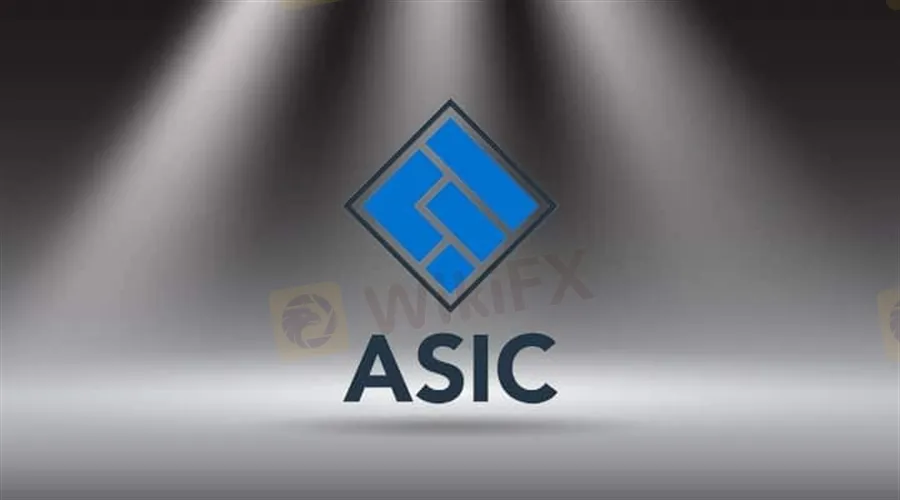简体中文
繁體中文
English
Pусский
日本語
ภาษาไทย
Tiếng Việt
Bahasa Indonesia
Español
हिन्दी
Filippiiniläinen
Français
Deutsch
Português
Türkçe
한국어
العربية
ASIC Warns Against Fake IPO Investment Frauds
Abstract:The regulator uses case studies of Porshe's IPO and Care A2's Pre-IPO. ASIC reminds that investing at the Pre-IPO stage involves higher risks.

The Australian Securities and Exchange Commission (ASIC) issued a warning on Wednesday regarding the increased number of fake initial public offering (IPO) investment scams targeting consumers and individual investors.
Take Advantage of the Biggest Financial Event in London. This year we have expanded to new verticals in Online Trading, Fintech, Digital Assets, Blockchain, and Payments.
According to the local market financial watchdog, scammers are impersonating licensed Australian firms and promoting fake offerings. Recently, investors were offered the opportunity to invest in Porsche's IPO, which took place on the Frankfurt Stock Exchange and Care A2's pre-IPO on the Australian trading floor. The fake offers overlapped with the actual listings and led to a loss of funds. ASIC honestly admits that after transferring money to scammers, it is no longer able to help consumers.
“A company that promotes an IPO in Australia must lodge a prospectus with ASIC. It may be a scam if: the company has not lodged a prospectus with ASIC (you can check this for free through ASIC Connect), the bank accounts details do not directly match the entity you are investing with and the document contains email addresses which don't correspond with relevant corporate email addresses,” ASIC commented in the press release.
ASIC warns that investing at the Pre-IPO stage may involve higher risks for retail traders. Offerings targeting the general public, especially distributed by emails, tend to be illegal and fraudulent. Therefore, the regulator recommends taking extreme caution when investing.
Scams Awareness Week in Australia
The Australian Competition & Consumer Commission (ACCC) and ASIC announced the start of Scams Awareness Week 2022 on Monday. The regulator publishes information on recognizing and avoiding particular investment frauds throughout the whole week. Firstly, it warned against cryptocurrency scammers and has now turned its attention to fake IPOs.
The Australian financial market watchdog continues its efforts to protect retail investors better. Last week, it heralded a list of 12 'Enforcement Priorities' for next year, including greenwashing, social media misinformation and cryptocurrencies. In August, the market governor asked brokers to 'reconsider' offering high-risk trading products to protect consumers.

Disclaimer:
The views in this article only represent the author's personal views, and do not constitute investment advice on this platform. This platform does not guarantee the accuracy, completeness and timeliness of the information in the article, and will not be liable for any loss caused by the use of or reliance on the information in the article.
Read more

WikiFX Broker Assessment Series | Decode Global: Is It Trustworthy?
In this article, we will conduct a comprehensive examination of Decode Global, delving into its key features, fees, safety measures, deposit and withdrawal options, trading platforms, and customer service. WikiFX endeavours to provide you with the essential information required to make an informed decision about utilizing this platform.

BOTBRO 2036: Lavish Choudhary’s Game-Changing Vision for Fintech?
BOTBRO has made significant strides in the digital asset market with notable products like TLC Coin 6.0 and Black Panther 4.0. Each release has represented a leap forward in technological capability and market influence, bringing BOTBRO closer to its goal of expanding within the financial sector.

Zenstox: A Trader’s Nightmare? An Inside Look at Alleged Scams and Unethical Practices
Rabih, a seasoned investor, initially trusted Zenstox’s promises of profit and support through dedicated account management. However, this trust quickly turned into frustration and despair, as he realized his investments were seemingly locked with no hope of retrieval.

Binance & CZ Challenge SEC’s Classification of Crypto Assets as Securities
In a November 4 filing, legal representatives for Binance and its CEO Changpeng Zhao (CZ) contested the Securities and Exchange Commission’s (SEC) amended complaint, asserting that the SEC merely pays “lip service” to a court ruling that excludes crypto assets from the definition of securities. The lawyers argue that despite this ruling, the SEC has continued to disregard its implications on digital asset trading
WikiFX Broker
Latest News
Capital One Faces Potential CFPB Action Over Savings Account Disclosures
M2FXMarkets Review 2024: Read Before You Trade
One article to understand the policy differences between Trump and Harris
Malaysian Woman's RM80,000 Investment Dream Turns into a Nightmare
Social Media Investment Scam Wipes Out RM450k Savings
FP Markets Received Three Major Awards
US Presidential Election in Overdrive: Exploring Forex Wealth Codes with WikiFX App
How U.S. Elections Have Influenced Financial Market Trends Since 2000
Zenstox: A Trader’s Nightmare? An Inside Look at Alleged Scams and Unethical Practices
eToro sponsors the Bitcoin Mena Conference
Currency Calculator


